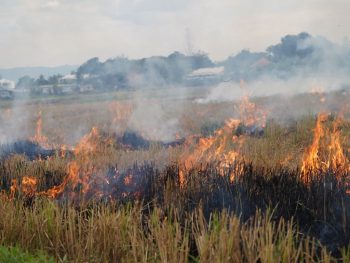Scientists tackle challenges of converting rice straw into next-gen biofuels
Research that could see inedible rice straw turned into a next-generation biofuel is underway in the UK.
Scientists at Birmingham’s Aston University are examining issues currently hindering conversion of the rice byproduct into an alternative fuel – and say their work could help combat global warning and minimise CO2 emissions while also protecting global food security.
In recent years, biofuels and biobased chemicals have been blended with petrol to create a more sustainable alternative. E10 fuel that contains 10% bioethanol has been the default unleaded petrol at pumps across the UK since September 2021.
MPs on the Transport Committee recently highlighted the benefits of both biofuels and synthetic fuels for those unable to switch to electric vehicles.
But production of biofuels remains controversial as it mainly relies on sugar crops such as sugarcane and sugar beet – as with bioethanol. This raises major concerns about the competition between growing crops for food or fuel. Campaign group T&E has been vocal on research showing biofuels harm food security and obstruct climate change mitigation.
The work by Aston University could combat this by overcoming the challenges of using rice straw as an alternative to current crops. Rice straw is seen as a better option because it doesn’t affect food security; it’s often treated as an agricultural waste byproduct and is removed by burning in the field.
But there are four main challenges preventing its use as a biofuel – and researchers say resolving each challenge will require major advances.
The two-year project will explore cleaner and cost-effective methods to extract rice straw’s energy-containing molecules.
It’s being led by Dr Alfred Fernandez-Castane, senior lecturer in biochemical engineering and principal investigator at the Energy and Bioproducts Research Institute (EBRI) at Aston University, alongside a Marie Curie fellow, Dr Longinus Igbojionu.
The team believes that the research will help contribute to combating global warming and decreasing avoidable deaths by protecting global food security, minimising CO2 emissions by reducing the burning of straw and decreasing the farmland needed for growing energy crops.
The research will end in November 2025.








